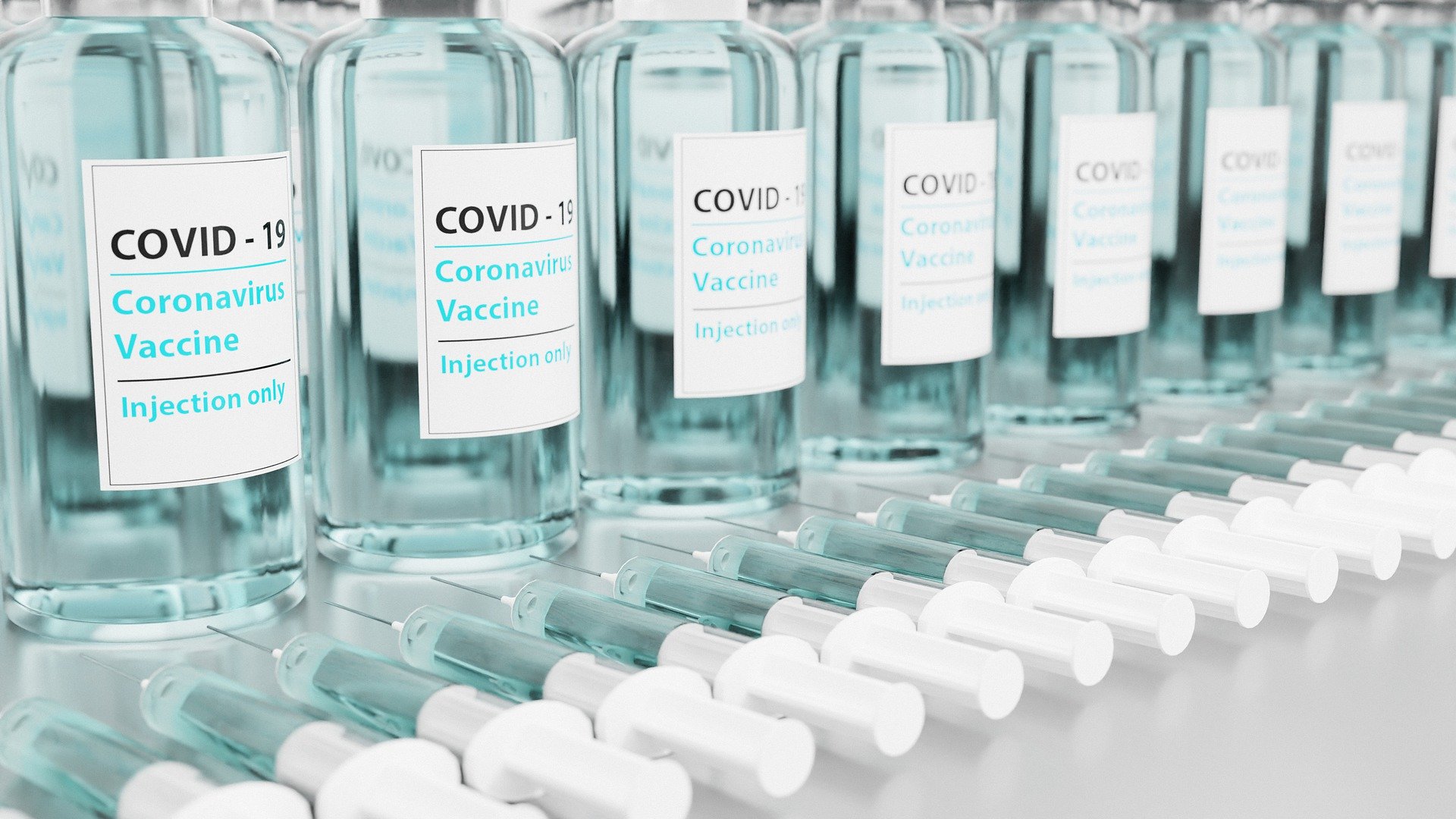Allergies & Immunology
COVID-19 VACCINATION
By A.A. (staff writer) , published on May 23, 2021

Medicine Telehealth Health vaccine covid-19 covid-19 vaccine
Nowadays, for COVID-19, the healthcare authorities believe there are more candidates for vaccines in the queue than any other infectious disease. They're all attempting to accomplish the same goal: immunity against the virus, and some might even be able to avoid transmission. They do this by inducing an immune response to an antigen, a molecule present on the virus. The antigen in the case of COVID-19 is usually the virus's signature spike protein present on the virus’s surface which it uses to enter human cells.
THE FOUR MAIN TYPES OF COVID-19 VACCINE
Clinical trials are underway on four categories of vaccines.
- Whole virus
- Protein subunit
- Viral vector
- Nucleic acid (RNA and DNA)
Some of these vaccines try to exchange the antigen into the body, while some viral antigens from the body’s cells.
Whole virus
To enhance the immune response, many traditional vaccines use whole viruses. There are two main ways to solve this issue. A modified or weakened version of the virus is used in live attenuated vaccines, which can also reproduce without causing disease. Inactivated vaccines use viruses that had disrupted genetic material, making them unable to reproduce but still eliciting an immune response.
Both forms of vaccine use approved and quality technologies and regulatory compliance, but live attenuated ones can cause disease in people with compromised immune systems and need strict cold storage, making their availability and use in low-resource countries more difficult. People with weakened immune systems may get inactivated virus vaccines, but they will need to be kept in cold storage.
Protein subunits
Different proteins are used in subunit vaccines, most commonly protein fragments, to initiate an immune response. It will reduce the chances of side effects. However, it may indicate a weak immune system. That’s why adjuvants are often used to help improve the immune response. The hepatitis B vaccine is an example of an emerging subunit vaccine.
Nucleic acid
Genetic material, including RNA or DNA – is used in nucleic acid vaccines to give cells the information to produce the antigen. This is usually the viral spike protein in the case of COVID-19. The entry of genetic material into the human cells, employs our cells' protein factories to produce the antigen that will elicit an immune response. These vaccines have the benefits of being simple to make and inexpensive. The immune response should be powerful because the antigen is generated in vast amounts within our cells.
However, no DNA or RNA vaccines have been approved for human use, resulting in further regulatory issues. Furthermore, RNA vaccines must be stored at ultra-cold temperatures of -70C or below, which may be difficult for countries without appropriate cold storage facilities, especially low- and middle-income countries.
Viral vector
In the same way, viral vector vaccines act by providing genetic instructions to the cells to generate antigens. They are different from nucleic acid vaccines in that they transmit these directions into the cell using a harmless virus that isn't the one the vaccine is attacking. Adenovirus, which causes the common cold, is one kind of virus that has been used as a vector. Our entire cellular machinery is hijacked, much as with nucleic acid vaccines, to generate the antigen from specific directions in order to elicit an immune response.
Vaccines based on viral vectors can resemble a typical viral infection and, as a result, can elicit a powerful immune action. However, because many people may have already been susceptible to the viruses used as vectors, some people may be resistant to the vaccine, making it less safe1.
Benefits of COVID-19 vaccination
As a result of generating an immune reaction to the SARS-Cov-2 virus, the COVID-19 vaccines provide immunity against the disease. Immunity may be developed by vaccines, which reduces the risk of contracting the disease and its effects. If you are susceptible to the virus, this immunity will aid you in fighting it. Having vaccinated can also benefit others around you, and you are less likely to harm others if you are shielded from infection and disease. It is especially critical for those at a higher risk of severe COVID-19-related diseases, such as healthcare professionals, the older people, and people with other chronic illnesses.
Who should get the COVID-19 vaccine?
The safety of COVID-19 is well-established for people older than 18 years, including those suffering from various health conditions. For example, diabetes, hypertension, kidney diseases, asthma, pulmonary diseases and liver diseases. You must contact your healthcare provider, if the supplies of COVID-19 are limited in your area. You must also talk to your health care provider if you:
- Weak immune system
- Pregnant or breastfeeding women
- Any history of allergic reactions with vaccine2
How safe is the COVID-19 vaccine?
- Vaccines to be used for COVID-19 must meet all safety, effectiveness and quality standards before use.
- All safety checks must be applied to all the other developing vaccines and undergo clinical trials.
- Vaccines for COVID-19 should be marketed once they passed all the tests of safety and effectiveness. Till now COVID-19 vaccination has been injected to millions of people, and complaints about side effects like clotting issues and allergic reactions have been very rare3.
References
- What are nucleic acid vaccines and how could they be turned against COVID-19? [Internet]. [Cited 2021 May 05]; Available from https://www.gavi.org/vaccineswork/what-are-nucleic-acid-vaccines-and-how-could-they-be-used-against-covid-19
- Coronavirus disease (COVID-19): Vaccines. [Internet]. [Cited 2021 May 05]; Available from https://www.who.int/news-room/q-a-detail/coronavirus-disease-(covid-19)-vaccines?adgroupsurvey={adgroupsurvey}&gclid=CjwKCAjw1uiEBhBzEiwAO9B_HTe6Wl-1yaNyOymjy8S-k-aIt5nhbk7eXlIv208i_endI2_4irqavhoCzb4QAvD_BwE
- Coronavirus (COVID-19) vaccine [Internet]. [Cited 2021 May 05]; Available from https://www.nhs.uk/conditions/coronavirus-covid-19/coronavirus-vaccination/coronavirus-vaccine/
Find articles related to: Medicine Telehealth Health vaccine covid-19 covid-19 vaccine
More articles about Allergies & Immunology
Back to the Health Tips Index




